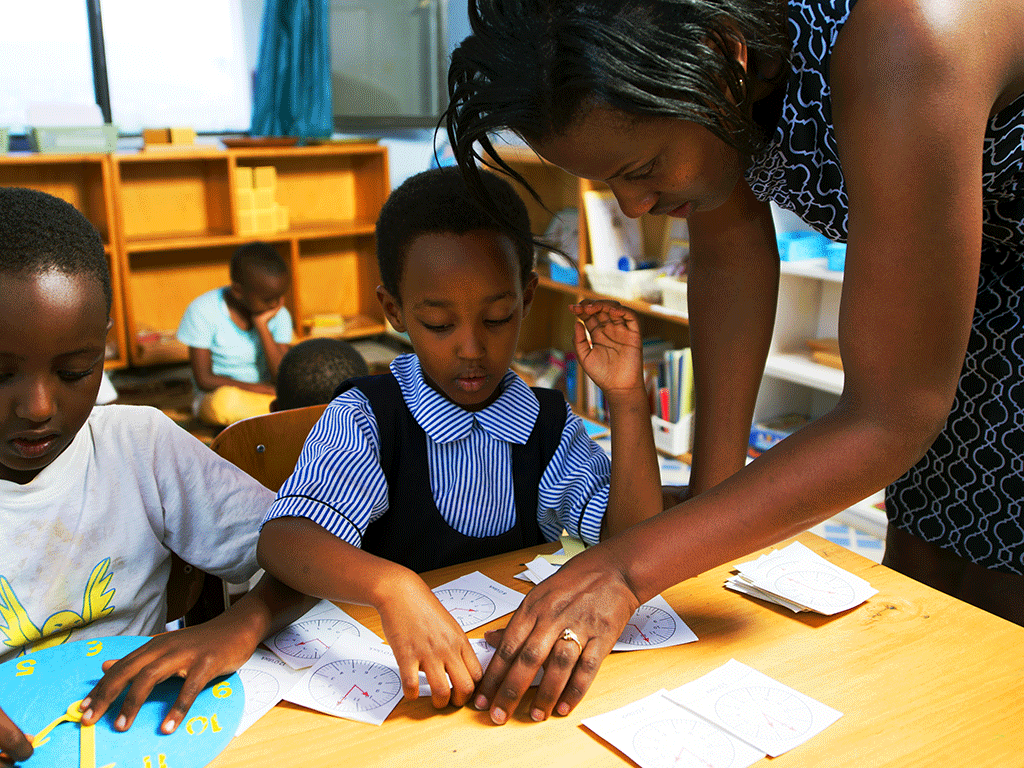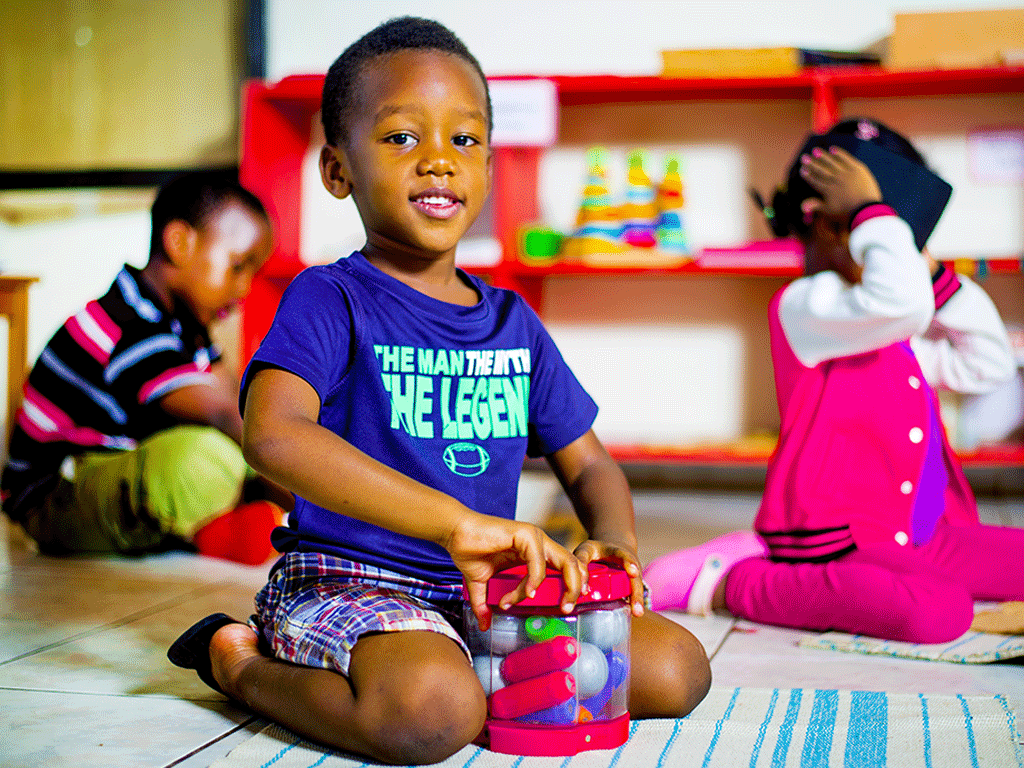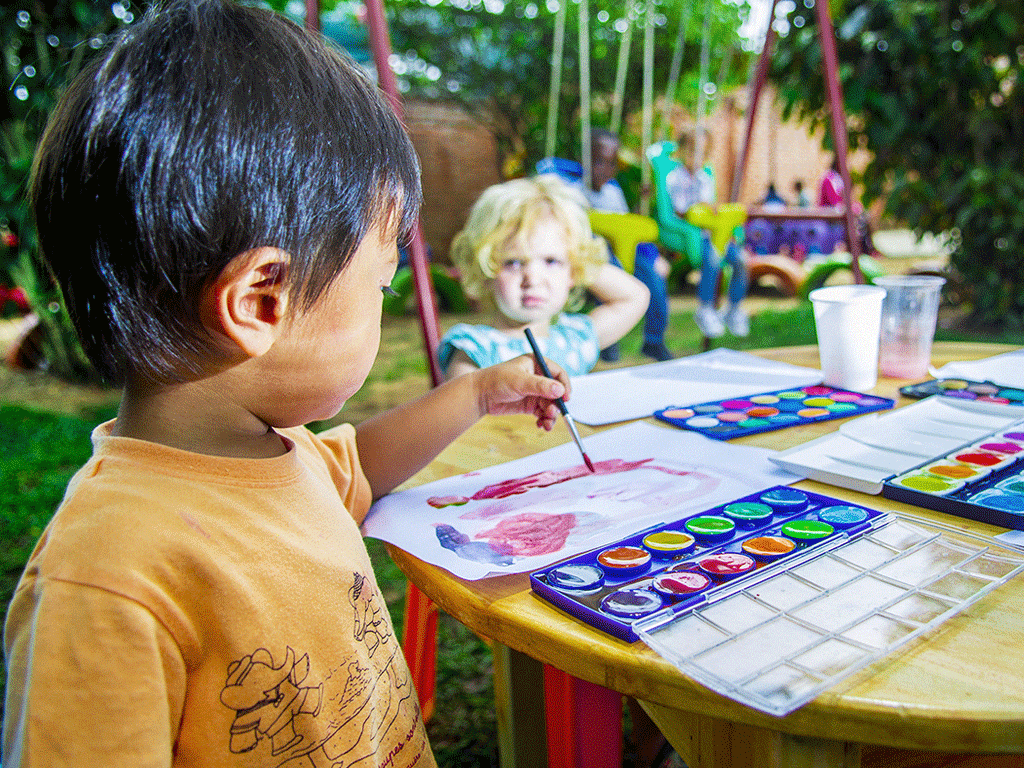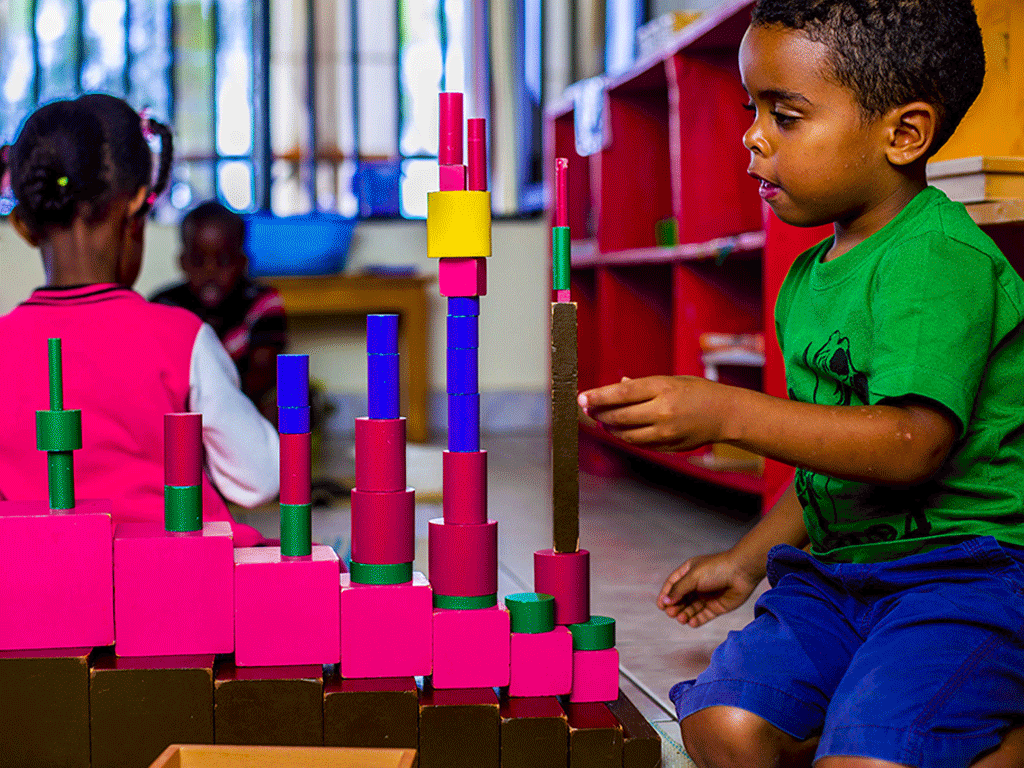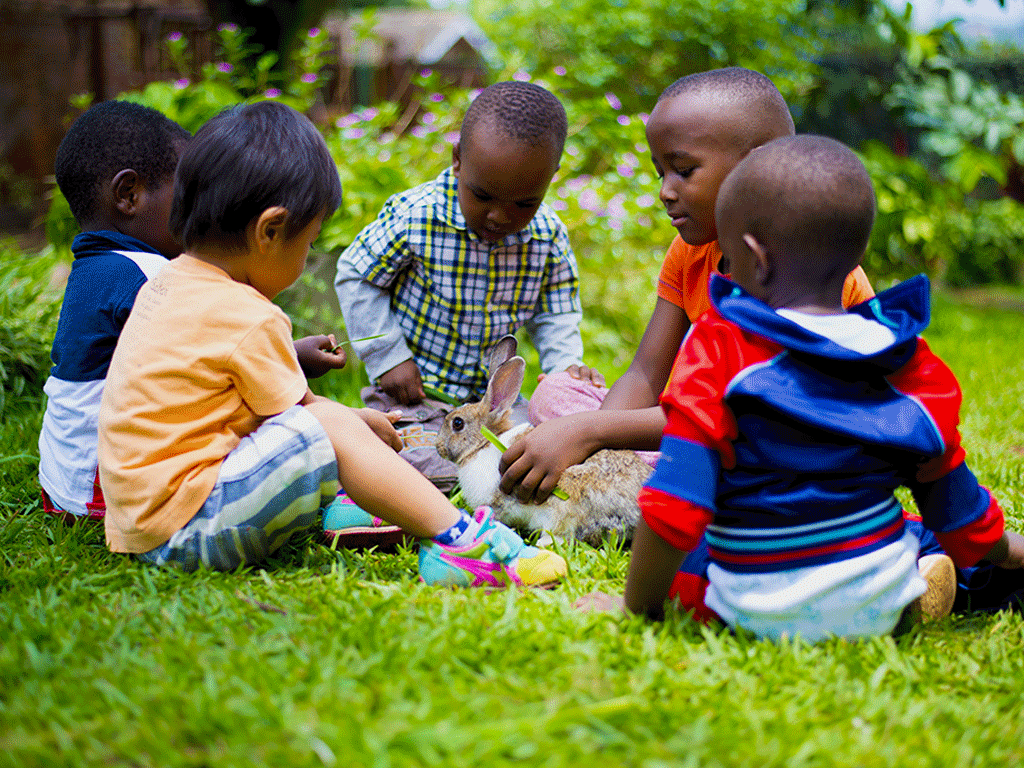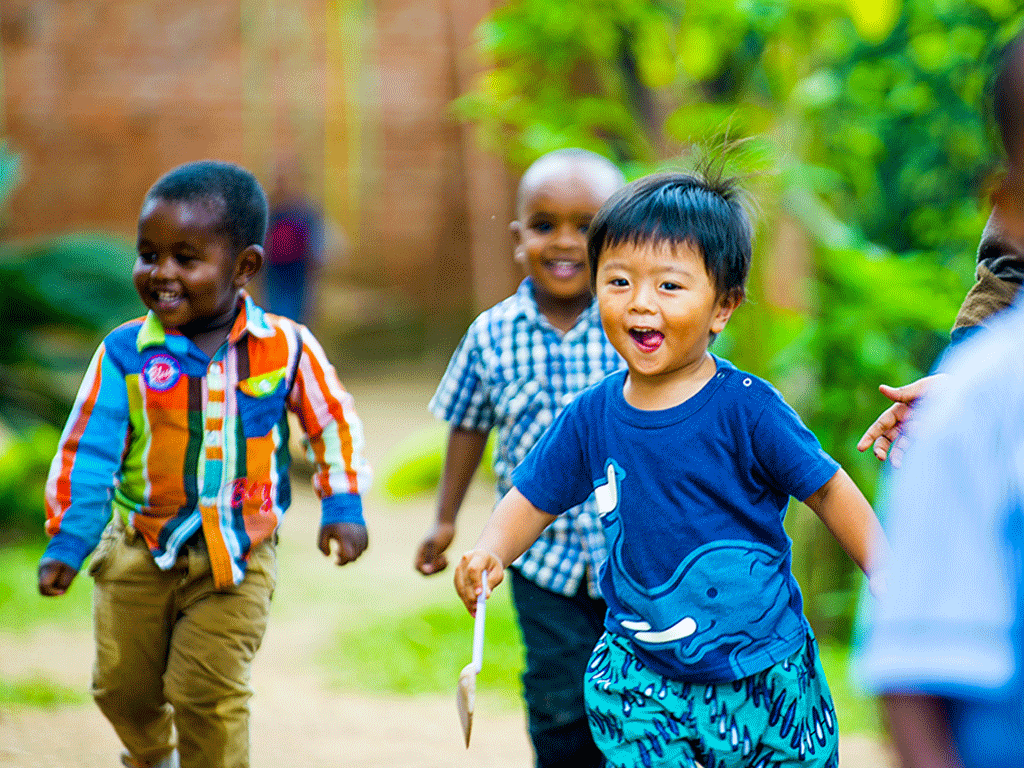“Education is a natural process carried out by the child and is not acquired by listening to words but by experiences in the environment.”
Montessori education offers a broad vision of education as an “aid to life”. This approach is designed to support children with their task of inner construction. This method succeeds because it draws on the natural development of the child. Each child’s inner directives are guided towards wholesome growth.
The Montessori classrooms provide a prepared environment where children can go to do purposeful work. The role of the Montessori teacher is to demonstrate the use of the materials and activities based on observation and careful assessment of the child’s needs. The ultimate goal of the teacher is to intervene less and less as the child develops. In this multi-age environment the children develop independence, creativity, responsibility and a sense of their place as a contributing member of their community.
Maria Montessori was the first woman doctor in Italy, in 1896. Through scientific observation, she developed a system of learning based on her conclusions about how children relate with one another, learn through the use of specific materials and go through universal phases of development.
Dr. Montessori’s philosophy was based on the principle that all children naturally develop in stages, called planes of development.
From birth to age 6, children are in the first plane, where they are sensorial explorers that absorb the world around them. Children in the second plane, ages 6 through 12, become conceptual explorers and abstract thinkers. They are eager to learn and experience the world and their role in it.
Using her background in psychology and her belief that society could be bettered through the education of children, she developed her approach to education. She also articulated universal laws of development that are inherent to children of all races and cultures. Her timeless method continues to be highly respected internationally.


